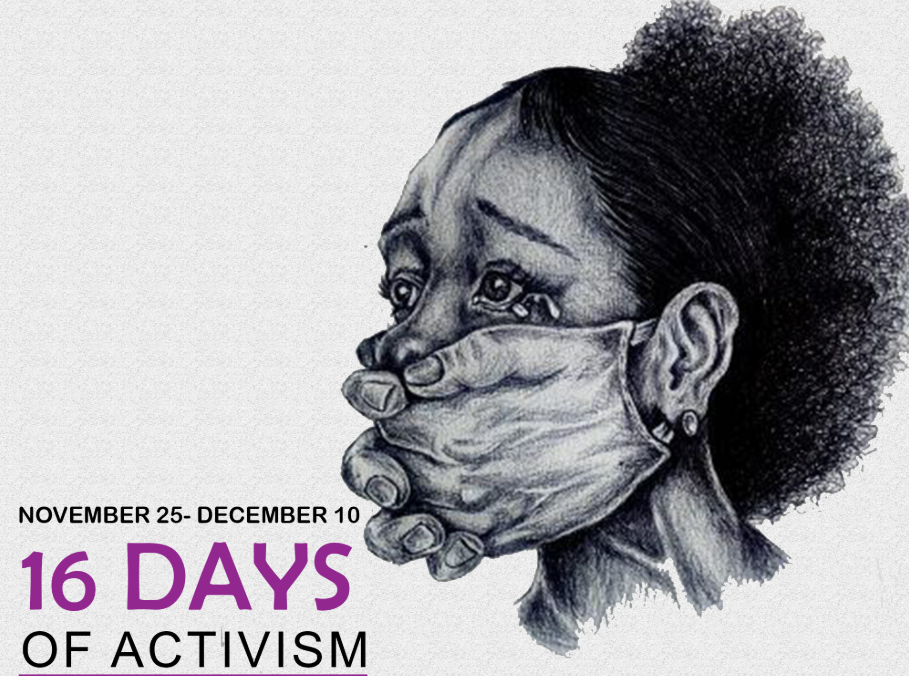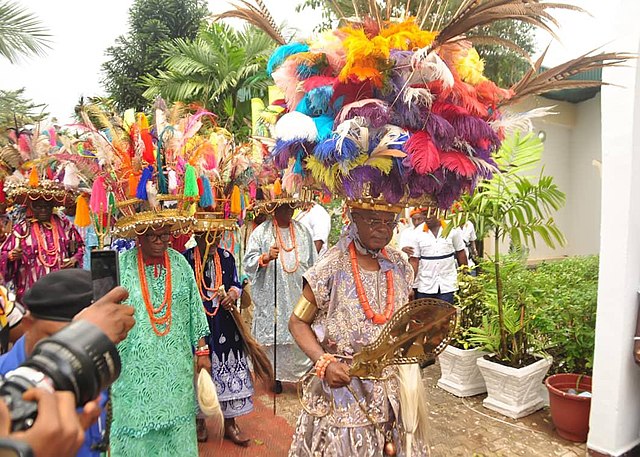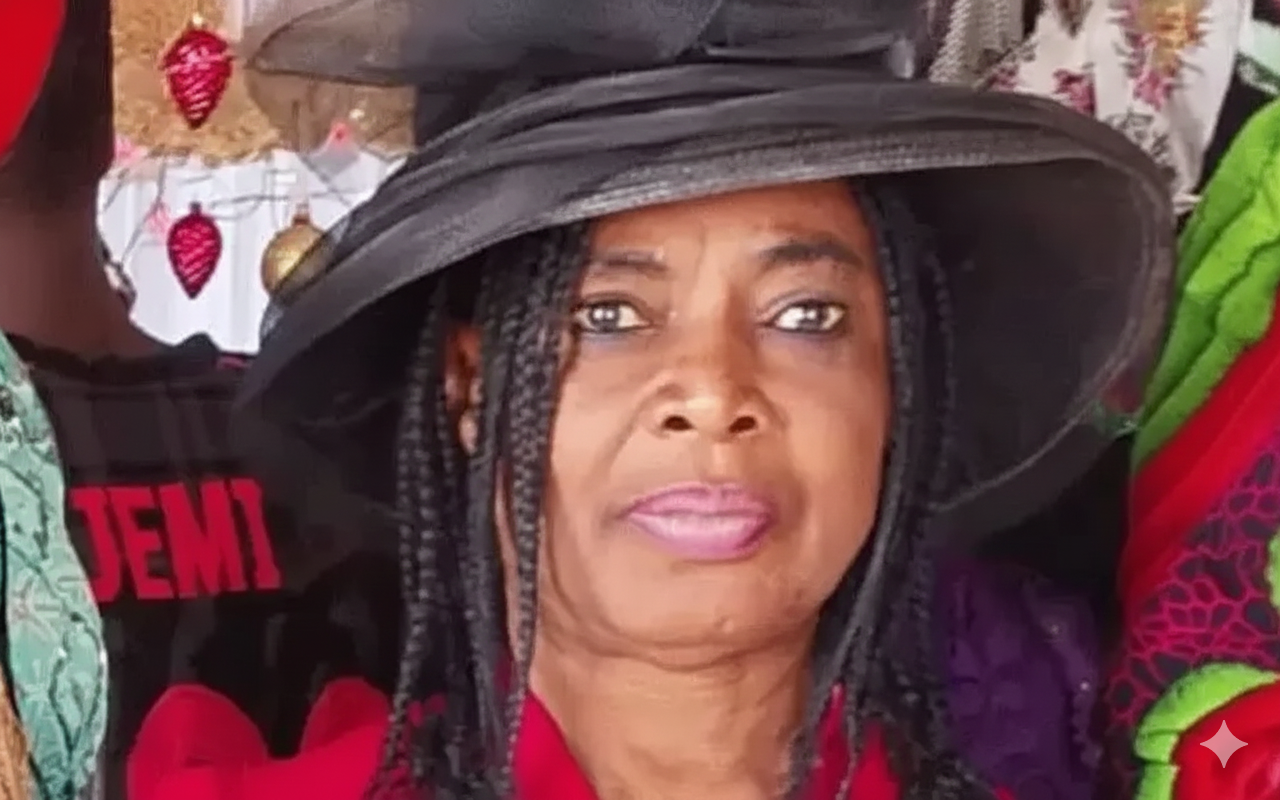 The 16 Days of Activism against Sexual and Gender-based Violence campaign has made a lasting impact in Nigeria, amplifying survivors’ voices and pushing for policy changes. Despite progress, the campaign highlighted alarming concerns, including growing gender-based violence and a lack of support for the Human Rights Fund, stressing the need for collective efforts to address these issues, OWEDE AGBAJILEKE reports.
The 16 Days of Activism against Sexual and Gender-based Violence campaign has made a lasting impact in Nigeria, amplifying survivors’ voices and pushing for policy changes. Despite progress, the campaign highlighted alarming concerns, including growing gender-based violence and a lack of support for the Human Rights Fund, stressing the need for collective efforts to address these issues, OWEDE AGBAJILEKE reports.
The yearly ’16 Days of Activism against Sexual and Gender-based Violence’ campaign, observed from November 25 to December 10, serves as a catalyst for raising awareness and sparking action to address the pressing concern of sexual and gender-based violence.
This year’s edition may have officially come to a close, but its impact and memories will continue to resonate deeply for a long time to come. The campaign, which aimed to raise awareness and mobilize action to prevent and respond to sexual and gender-based violence, has left an indelible mark on the hearts and minds of Nigerians.
Pundits say the conversations, events, and activities that took place during the past 16 days have helped to amplify the voices of survivors, challenge societal norms, and push for policy changes that will help to prevent and respond to these forms of violence.
The Guardian reports that the ’16 Days of Activism Against Gender-Based Violence’ is a worldwide initiative that aims to eradicate violence against women and girls. Held annually from November 25 (International Day for the Elimination of Violence against Women) to December 10 (Human Rights Day), the campaign seeks to raise awareness, drive action, and hold perpetrators accountable for the widespread and systemic violence that impacts millions of women and girls globally.
The campaign originated from the inaugural Women’s Global Leadership Institute, hosted by Rutgers University’s Center for Women’s Global Leadership in 1991. Over the years, it has evolved into a global phenomenon, engaging thousands of organizations, governments, and individuals worldwide, with a shared vision of creating a world where women and girls can live without fear of violence and discrimination.
It is strategically timed to coincide with several key dates that highlight the importance of addressing violence against women and girls. These significant dates include: International Day for the Elimination of Violence against Women (November 25), marking the beginning of the campaign; International Women Human Rights Defenders Day (November 29), recognizing the courage and resilience of women who fight for human rights; World AIDS Day (December 1), raising awareness about the impact of HIV/AIDS on women and girls; International Volunteer Day for Economic and Social Development (December 5), highlighting the role of volunteers in promoting social change, culminating in International Human Rights Day and the anniversary of the Universal Declaration of Human Rights (December 10), emphasizing the fundamental human rights of women and girls.
Since its inception, the global campaign has gained significant momentum, with over 6,000 organizations from approximately 187 countries participating in the initiative. This widespread participation underscores the global commitment to addressing gender-based violence and promoting a culture of equality, justice, and human rights.
Nigeria recently joined the global community in observing the campaign, with a series of nationwide events aimed at raising awareness and promoting action to eliminate violence against women and girls.
The Rule of Law and Anti-Corruption (RoLAC), funded by the European Union and implemented by the International Institute for Democracy and Electoral Assistance (International IDEA), played a pivotal role in leading the country’s efforts to commemorate this important initiative.
Through various events and activities, RoLAC, in partnership with the National Human Rights Commission (NHRC), worked tirelessly to amplify the voices of survivors, advocate for policy changes, and promote a culture of zero tolerance for gender-based violence.
Since 2019, RoLAC has been at the forefront of targeted advocacy, public sensitization, and learning events during the 16 Days of Activism. Collaborating with various government agencies, civil society organizations, media partners, and influencers from the entertainment industry, these initiatives have made a tangible impact, evidenced by the establishment of SGBV courts in the FCT in 2021 and the replication of Sexual Assault Referral Centres (SARCs) across the country.
For RoLAC, corruption denies citizens their fundamental rights, including access to education and equal opportunities. In a chat with The Guardian, it expressed its commitment to support government agencies and civil society organizations in developing and implementing laws that improve the justice system.
Component Manager of the programme, Dr. Oluwatoyin Badejogbin, said RoLAC has, over the years, collaborated with the NHRC to promote human rights in Nigeria, especially on International Human Rights Day, to create awareness and highlight the challenges and opportunities for deepening compliance with human rights standards in Nigeria.
He said: “The Rule of Law and Anti-Corruption Programme places respect for human rights at the heart of what it promotes. Our interventions are based on the theory of change that strengthening the system of justice secures the rule of law better and provides the essential conditions for enjoying access to justice in a democracy like Nigeria.
“Of course, you know that corruption in public and even private life, in law enforcement or the judicial system, robs Nigerians of constitutionally guaranteed rights, such as the right to basic education, equal opportunities, the protection of the law from simple to egregious violations of human rights, and even the efficient delivery of public services.
“Thus, as a programme, we support government institutions and civil society to establish and implement legal frameworks that strengthen justice delivery. We work with public sector institutions to strengthen their capacity to implement criminal justice laws and reforms, to strengthen legal safeguards against human rights abuses such as torture, to improve the responsiveness of the legal system to human rights abuses, and expand access to justice for women, children, persons with disabilities, and victims of sexual and gender-based violence. We also strengthen anti-corruption systems and reforms.”
On his part, NHRC Executive Secretary, Dr. Tony Ojukwu SAN, emphasized the significance of this year’s theme, “Equality – Reducing Inequality and Advancing Human Rights,” highlighting its importance as a reminder and a call to action to reaffirm our collective commitment to protecting the rights of every individual in Nigeria and beyond.
The situation of sexual and gender-based violence in Nigeria is alarming. According to recent reports, the incidence of gender-based violence is growing astronomically, with one in three Nigerian women experiencing physical violence by age 15. The violence manifests in various forms, including forced and early marriages, physical, mental, or sexual assault, and human trafficking.
Also, the National Gender-Based Violence (GBV) dashboard in Nigeria, a central platform for reporting and visualizing data on GBV in the country, operated by the Federal Ministry of Women Affairs, indicated that between 2020 and 2023, Nigeria recorded 27,698 cases of GBV, including 1,145 fatal cases. The dashboard also showed that 393 perpetrators were convicted within this period.
Speaking to reporters during the Human Rights Awareness Walk to mark International Human Rights Day, Dr. Ojukwu disclosed that Nigeria receives approximately two million human rights violation complaints annually.
This, he noted, is not only a telling indicator but also signifies a remarkable level of awareness among citizens about their rights and a growing willingness to report violations.
“We are receiving up to 2 million complaints a year. What does that show you? Massive awareness about people’s rights and the eagerness of people to report violations of their rights, hoping to seek redress.
“So for us to be at the 2 million mark for complaints a year now shows that Nigeria has come of age. Nigerians are aware of their rights and are seeking that their rights should be addressed.
“So it’s a challenge to authorities. It’s a challenge to the government. It’s a challenge to individuals that Nigerians are seeking to address their rights. And we all have to rise up to the occasion, including you, the media.
“We all have to rise up to the challenge to speak against violations of rights and also challenge the court and the National Human Rights Commission when these rights are violated, which will also take steps to make sure we address them,” he said.
A major concern highlighted during the campaign is the alarming lack of support for the Human Rights Fund in Nigeria. This Fund is crucial for addressing the rising cases of human rights violations in the country. The Commission emphasized the need for Nigerians to contribute to the Fund, as it would provide the necessary resources to tackle these violations effectively.
While explaining that the Fund plays a vital role in supporting initiatives that promote and protect human rights in the country, the Executive Secretary said with additional funding, the Commission can strengthen its efforts to address various human rights issues, such as sexual and gender-based violence, police brutality, and others.
His words: “This year, we expanded our sensitization campaigns, increased engagement with stakeholders, built capacity for responders, and also leveraged social media platforms to amplify messages, raise awareness, and engage with the public.
“Besides, we deepened our collaboration with civil society organizations, government agencies, and other stakeholders to amplify our efforts and ensure a coordinated response to gender-based violence.
“I make bold to submit that human rights protection is a continuous process and not an event. Therefore, we remain committed to going the extra mile to ensure that our dear country becomes a model and bastion of human rights protection worthy of the attention of other African nations and beyond. Of course, the Commission has for the 5th time earned Grade ‘A’ Status, awarded by the Global Alliance of National Human Rights Institutions.
“It has thoroughly and objectively investigated allegations of gross human rights violations. The reports of the defunct SARS Panel have remained a reference point for human rights defenders, given the crucial role the Commission’s report has played in ongoing police reforms. It is on record that the panel, which submitted its reports to the Federal Government under the regime of former President Muhammadu Buhari, GCFR, made far-reaching recommendations on how to reform the Police, including the establishment of State and Local Government Police. Part of the recommendations also included the payment of compensation to victims of police brutality, which amounted to about N500 million. We used this opportunity to commend the Federal Government for providing the funds for the payment of compensation, which has restored citizens’ confidence in the government’s ability to protect and enforce their human rights.”
Industry stakeholders say the consequences of the Fund being left unfunded since its inception are far-reaching. Some of the potential repercussions of this funding shortfall are: inability to support human rights initiatives, limited capacity for human rights advocacy, increased vulnerability of human rights defenders, delayed progress in achieving human rights goals, erosion of trust in the government’s commitment to human rights, and a negative impact on Nigeria’s international reputation.
They listed prevalent factors exacerbating gender-based violence in the country as weak policy and legal frameworks, discriminatory laws and policies, socio-cultural and religious beliefs, as well as sexist social trends and pop culture.
Without a doubt, the 16 Days of Activism against Sexual and Gender-based Violence has left an indelible mark on Nigerians, amplifying the voices of survivors, challenging societal norms, and pushing for policy changes. The campaign’s success is a testament to the power of collective action in promoting human rights and ending gender-based violence.
However, the alarming lack of support for the Human Rights Fund is a major concern that requires immediate attention from all stakeholders. As emphasized by the Commission, the Fund plays a vital role in supporting initiatives that promote and protect human rights in the country.
Ultimately, ending gender-based violence and promoting human rights in Nigeria requires a sustained and collective effort from all stakeholders, including government agencies, civil society organizations, and individuals. By working together, the country can create a society where women and girls can live free from fear of violence and discrimination.






